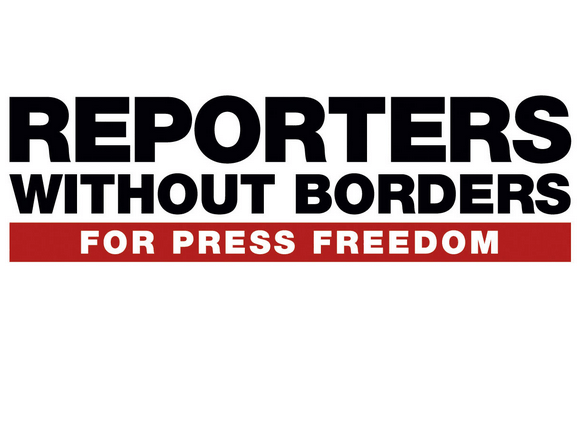From Reporters Without Borders.
Libya’s journalists are still among the leading victims of the political turmoil and violence that have been a constant ever since Col. Gaddafi’s overthrow in the 2011 revolution. Armed clashes are continuing despite an attempt by the United Nations Support Mission in Libya (UNSMIL) to broker a ceasefire and talks between the various political players and armed factions two weeks ago in the remote town of Ghadames.
Reporters Without Borders condemns the murder of Al-Tayeb Issa, one of the founders of privately-owned satellite TV station Tuareg Tumsat, in southwestern Libya on 5 October and radio presenter Motassem Al-Warfalli’s murder three days later in the eastern city of Benghazi.
Issa’s bullet-riddled body was found on the road between Ghat and Obari, where he was from. His car had been set on fire. A colleague said that Issa, who was the TV station’s financial director, was a respected and discreet person who had never received threats.
Obari has seen armed clashes between members of the Tebu and Tuareg communities since mid-September. They began when Tuaregs, who reportedly came from another region and support the armed Islamist coalition known as Operation Libya Dawn, tried to take over Obari’s main gas station, until then protected by a local Tebu force.
Warfalli, a young presenter on Radio Sawt Libya Al-Watan, was murdered by gunmen who fired on him from a car and then sped away. He was known as a supporter of Ansar Al-Sharia, a group regarded as a terrorist organization by the Libyan government and the United States.
Although the motives for these murders are still unknown, Reporters Without Borders does not rule out the possibility that they were linked to the victims’ journalistic work and urges the Libyan authorities to carry out swift investigations that take account of this possibility.
This duty was stressed in the UN Human Rights Council’s resolution of 22 September on the "Safety of journalists".





